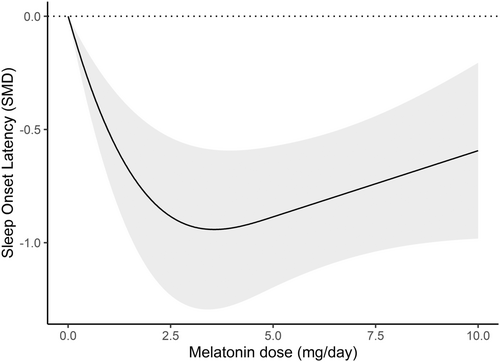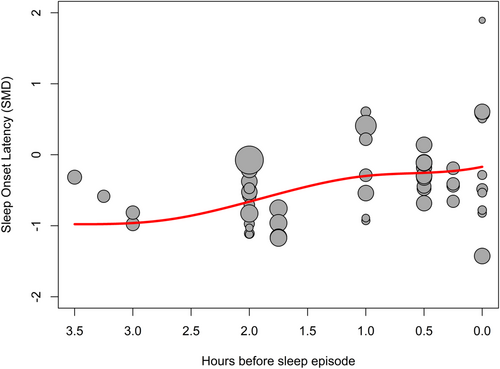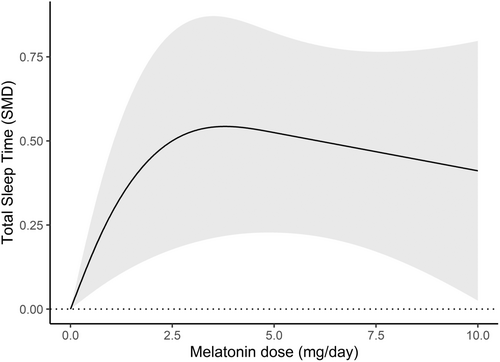adssx
#307
Per ChatGPT (I have no idea whether this is correct or not):
In most contexts, a high level of 8-OH-dG in tissue might indicate that there’s significant oxidative damage. However, when we measure urinary 8-OH-dG, we’re actually capturing a by‐product of the DNA repair process. When DNA damage occurs, cells use repair mechanisms—specifically, the base excision repair pathway—to excise damaged bases like 8-OH-dG from the DNA. Once excised, these modified bases are excreted in the urine.
Increased urinary 8-OH-dG excretion during daytime sleep (with melatonin) suggests that the repair process is more active. Melatonin appears to boost the repair machinery, leading to the removal and subsequent excretion of more oxidized bases.
Conversely, if repair were impaired, the damaged bases might remain in the DNA rather than being excreted, resulting in lower urinary levels even though the cellular damage is higher.
Thus, while you might intuitively think “less 8-OH-dG is better” because it signifies less damage, in this study, higher urinary 8-OH-dG actually indicates that the body is effectively repairing and clearing oxidative damage. Essentially, the assay is using 8-OH-dG excretion as a surrogate for repair capacity rather than a direct measure of oxidative stress burden.
1 Like
I guess that could make sense? Alternatively, daytime melatonin is causing dna damage that requires more repair. The study also only showed relatively minor increases on an absolute level. The medians were very low indication of dna damage and the post-melatonin was still low.
adssx
#309
What I’m not sure to understand is: is there an absolute measure of DNA damage? In the study they measured repair. If repair increases it could be due to increased damage or increased repair capacity.
If metformin both prevents future damage and improve current repair capacity then:
- Which dose (if any) maximizes damage prevention?
- Which dose (if any) maximizes repair capacity?
If there’s such a threshold and you reach it then theoretically the urinary metric could reach 0 after some point as their would be no more damage (prevention + previous repair).
1 Like
Yea this is why the study is a bit confusing to me. 8-OH-dG in the contexts I’ve seen it used is typically a measurement of dna damage (ie you have increased repair due to increased damage). So interventions looking to reduce dna damage would seek to reduce this value. I would also suspect that in the opposite case you would want to see this value reduced in the long term. If your intervention is trying to increase dna repair, initially 8-OH-dG should increase until enough repair has been done to overcome the ongoing/cumulative damage, and then 8-OH-dG should decrease.
In the context of melatonin, given that it’s a potent antioxidant, I would have expected that it would fall under the former - reduction of damage, and we’d see a decrease in 8-OH-dG.
1 Like
LukeMV
#311
A little off topic but I like taking a 1mg sublingual tab before bed. Then I take another one when I wake up to use the bathroom in the middle of the night to fall back asleep.
3 Likes
adssx
#312
I think that’s the method recommended by John. I’ve just started doing it as well.
1 Like
blsm
#313
This is wonderful and a real accomplishment imo! Thank you
Beth
#314
This week I also just started using the sublingual upon wakening in the middle of the night, in addition to my SR before bed. It seems to be working well!!!
Quick question… my concern is having something dissolve in my mouth after brushing my teeth. Do we know if this could contribute to tooth decay or plaque? I was wondering if I should just swallow it
(I think of this because I gave myself my only cavity in 40 years during my chocolate edible phase!)
1 Like
I dont know. I find melatonin reduces gingivitis when sucked. Because i take so much melatonin now i dont know what would happen to my gums were i to stop, but i dont want the risk of additional mtDNA damage so i stick with the program.
2 Likes
adssx
#316
Optimizing the Time and Dose of Melatonin as a Sleep-Promoting Drug: A Systematic Review of Randomized Controlled Trials and Dose−Response Meta-Analysis 2024
Dose−response meta-analysis showed that melatonin gradually reduces sleep onset latency and increases total sleep time, peaking at 4 mg/day. Meta-regression models showed that insomnia status (β = 0.50, p < 0.001) and time between treatment administration and the sleep episode (β = −0.16, p = 0.023) were significant predictors of sleep onset latency, while the time of day (β = −0.086, p < 0.01) was the only significant predictor of total sleep time. Our results suggest that advancing the timing of administration (3 h before the desired bedtime) and increasing the administered dose (4 mg/day), as compared to the exogenous melatonin schedule most used in clinical practice (2 mg 30 min before the desired bedtime), might optimize the efficacy of exogenous melatonin in promoting sleep.



@John_Hemming: what do you think about taking it 3h before bedtime?
5 Likes
Nlo
#317
Many of the melatonin dissolvable tabs contain xylitol which is purported to support tooth strength/enamel. I just began to use the dissolvable tabs at night with this in mind. I will be getting a stronger strength 20 mg capsule to supplement because I am now using more melatonin tabs with xylitol than I want to ingest overall.
2 Likes
Beth
#318
Xylitol, brilliant! I just learned more about its benefits from the Wise Athletes most recent podcast.
My 10mg from Century 21 contains Cellulose, gum acacia, hydroxypropyl methylcellulose, stearic acid. Contains <2% of: magnesium stearate, silicon dioxide.
Are you using a particular brand you want to recommend ?
My sleep is very poor by commonly accepted measures. I have no problem with sleep onset, I fall asleep very quickly, within a handful of minutes. My problem is waking up, oftentimes as soon as one hour after falling asleep, and then not able to fall back asleep for hours and hours, often until the morning, and then only get a couple of hours of sustained sleep.
So melatonin taken early, if designed for sleep onset is of little use to me. I experimented with delayed release melatonin just before bedtime, didn’t seem to make any difference. Of course those were low doses, so maybe that’s the issue for me, but otherwise melatonin hasn’t been of any use for me.
The strangest part of my sleep problems, is that subjectively I don’t feel bad as a result, despite absolutey atrocious sleep stats. I often get no more than 3-4 hours of sleep a night, very fragmented, just terrible. It’s been like this for years. And yet, I get out of bed full of energy, am not sleepy during the day, exercise just fine, even during heavy/intense exercise days, mentally don’t feel impaired, memory is fine etc.
I figure my brain is turning to mush from these terrible sleep patterns, but I still haven’t felt the effects by my age (67 in a couple of months). Maybe it’ll all come crashing down suddenly one day, lol.
1 Like
adssx
#320
Did you try taking melatonin after waking up?
How good is your sleep hygiene? Have you tried CBT-I? What helped me improve my sleep (I had similar issues: I fall asleep in a minute but sometimes wake up):
- Sleep deprivation (this is always the first step of a CBT-I program to reset the brain)
- Bed only for sleep and sex. So no reading in bed. No phone. No TV. No laying on the bed for a few minutes to rest. (Ideally same for the whole bedroom)
- Early and light dinner.
- No scrolling screens 2h before sleep.
- EXACT same time to bed everyday
- 0 nap during the day (or one short one, like 20 min)
- Morning meditation
- Front loading water in the morning and no liquid 2h before bed
- Writing down my day and things to do for tomorrow on a piece of paper 2h before sleep
- Tricks to fall back asleep (there are many, find the one that works for you: counting backwards, chain of words, visualisation, etc.)
- Do not stay in the bed when you wake up at night: if you can’t fall back asleep (with the above tips) after 15 minutes then leave the bed, leave the room, go in a warm dark place with a blanket on you, do something relaxing (such as reading a book), no screens, and when you dose off: go back to bed.
- No coffee/tea after 2pm (even earlier if you’re sensitive).
- Cool bedroom (18°C)
- Total blackout + eyemask
- No exercise in the evening
- Sunlight in the morning
- Same ritual before bed
- Gratitude journaling
- No clocks in the bedroom: when you wake up, don’t look at the clock.
4 Likes
Nlo
#321
The natrol brand has xylitol. I get mine from Costco as it is the best price, however, I need to increase my dose by taking a 20 mg capsule and then supplement with a Natrol melatonin when I awaken in the night. Otherwise, I would be getting too much xylitol.
Melatonin never really impressed me at the .3-6 mg doses taken prior to sleep, but taking the chewable tabs when I awaken (20-40 mgs spread throughout the night) has given me amazing results. I am new to this higher dosing (less than a week) so take my anecdote with a grain of salt, but so far I’m sold. One thing that has been a game changer is that I can chew the tabs without water which tends to flow right through me, so im not having to get up to pee as much. Hallelujah!!
1 Like
Thank you for that list. But for me, the whole issue is very complicated. Through the years, I’ve tried various approaches, including the full gamut of sleep hygiene, but some things I just find extremely difficult, sadly. Like meditation - I just have no patience, I’v tried meditating in various contexts many times over the years, but I just can’t… I might have faulty brain wiring that is resistant to meditation, even when it seems like I’m there, I get a sudden overwhelming feeling of wasting time (yikes!). No reading in bed - very hard, but doable. However, when I wake up, it seems pointless, because countless times I’ll just lie there in the dark for hours without falling asleep - I’ve done it so often…may as well start reading.
The only thing that does “work” for me, is sleep deprivation. If I wake up after one hour of sleep and get up, after a couple of nights of sleeping only an hour I can crash and sleep a solid 6-7-8 hours. So why don’t I do it more often? Because the rebound is terrific. Meaning after sleeping 6-7-8 hours I feel so full of energy, so wired, that I simply cannot sleep at all the next night! It’s as if I drank 10 cups of coffee. So what happens is: (1)sleep problems (2)initiate sleep deprivation (3)crash for a good night (4)following day feel so wired/full of energy that I cannot sleep → back to (1)sleep problems.
I have to do something, but I feel a bit discouraged. I’m hoping that somehow naturally, my energy levels will fall off with age, and I’ll just sleep solidly from sheer exhaustion like a normal person.
2 Likes
The core to meditation is breathing exercises which directly affect the vagus nerve and autonomous nervous system. Try box breathing which is breathe in slowly say for a count of 5 (count depends on what you can do), then hold for the same count, then breathe out for that count and then hold again (for the same count).
The NSDR Yoga Nidra sort of thing can also help.
2 Likes
adssx
#324
Start a CBT-I program. It’s proven: it works (not necessarily magic but it improves outcomes in most people). In the UK I did https://www.sleepstation.org.uk it’s a six-week program so very low commitment. I’m sure there are equivalents where you live.
Again: have you tried taking melatonin 3 mg after waking up during the night?
Meditation: are you doing it alone? It’s hard at the beginning. An app like Headspace can help to learn the skills.
If you really can’t, as suggested by John: do some yoga in the morning instead. Ideally a practice that includes a few minutes of meditation at the beginning and at the end.
1 Like
adssx
#325
Sorry for the double post:
- If you read in bed you send the signal to your brain NOT to fall asleep in bed.
- When you wake up, don’t “just lie there in the dark for hours without falling asleep”: leave the bed and leave the room! It’s essential. Then you can read outside. Until you feel tired again. Then go back to bed. If you don’t: that’s fine. You wake up at 3am, you’re sleep deprived, you resist not to have a nap and not to go to bed earlier than you set time. And you repeat the process. That’s how you reset and rewire your brain.
Also: remove all clocks and screens from your bedroom. When you wake up: don’t look at the clock. Never.
3 Likes
If people are using a sleep tracker they can work out when the ultradian cycles are from that an understand that they should aim to catch the next cycle change.
Also using breathing exercises (nsdr) followed by turning on the side is good. Turning on the side (and I think Right is best) stimulates the vagus nerve (vagus is not symmetrical) and helps to tell the body that it is time to sleep.
@CronosTempi should tell himself that breathing exercises are needed for sleep and sleep is important hence breathing exercises are important.
I have more recently taken to having jazz music on at a very low volume. This does not prevent me from sleeping, but does stop me thinking about things necessarily.
2 Likes